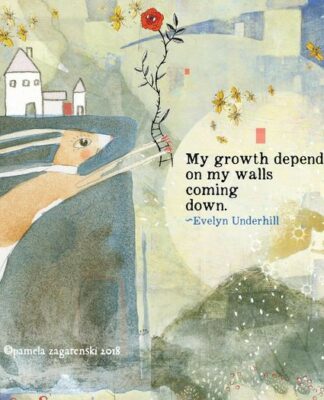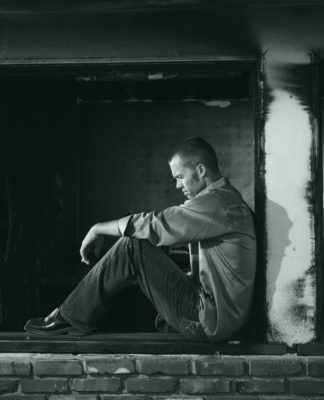Picture a twenty-four-year-old adorable, intelligent but anxious and insecure young man. Joe, as I will call him, often feels frightened. If he were to pause for a moment and check in with his physical state, at most moments in the day he would feel his heart beating in his chest and a subtle full-body vibration. Sometimes he has a pit in his stomach and his appetite for food disappears.
These are all common physical symptoms of anxiety. Sensations like these are at best annoying and at worst upsetting, debilitating and scary. Joe wonders why he feels anxious so often. Thoughts like, “what’s wrong with me?” come into his mind and often preoccupy him, which of course makes it worse by adding anxiety on top of anxiety. This experience is all going on secretly inside him. To the rest of the world he seems “fine.”
Tonight Joe is going on a date. He wants to feel relaxed and happy. He wants to feel calm, confident, connected and clear in his thoughts — to be “in his C’s.” He’s nervous and wants to be liked by his date. This, of course, adds pressure and increases his nervousness. How common is this? Completely universal! Yet, for many of us, it is not necessarily cool to discuss or confess how one actually feels.
When a person, man or woman, can be real and authentic about feelings in the presence of an accepting, caring, non-judgmental person, anxiety is immediately reduced and closeness created. Pretending to feel one way when you really feel another takes valuable energy. Plus, pretending you are something you are not is isolating—it creates shame. Our culture teaches us, particularly men, to act tough and confident, to NOT be sensitive. However, tender feelings like sadness, fear, anxiety and shame are universal to men and women without exception. The truth is that all people suffer from anxiety even if they cover it up. It is so curious to me why talking about it makes others uncomfortable so they judge.
Let’s imagine Joe starts off his date by sharing what he truly feels in the moment, “I feel a little nervous. Dating doesn’t come so easily to me.”
As you read this, whether you are a man or a woman, imagine someone saying this to you on a first date. How do you feel to hear this? What does it evoke in you? Does the openness and vulnerability turn you on or off? Do you see it as strength or weakness? Does it draw you in or push you away? Do you feel, “Me too!” What would you say in response? Are you stuck as to how to respond? Just notice without judging yourself.
Ideally, Joe could share his fears about dating or anything else for that matter. Ideally he could “confess” to being dysregulated–his body “upset” to an uncomfortable emotional state. Ideally he could talk about feeling insecure and anxious. And, ideally, his date would say, “I understand. You’re human.” Then he (and she) could relax a little bit more and enjoy getting to know other things about each other.
Men don’t typically feel free to be this honest and authentic with good reason. The culture in which we live dictates that men have to be “strong” or else they are not men. Many “bros” as well as women in our culture are unkind to men who own or admit to tender feelings like fear, anxiety, sadness and shame, judging these admissions as signs of weakness. It shouldn’t define a man just because he admits to having tender feelings.
If we know that core feelings of fear and sadness are universal in men and women (which they are), as are inhibitory feelings of anxiety, shame and guilt…
If we know men have these feelings but are just hiding them or covering them up…
If we know covering up feelings causes depression, chronic shame, aggression and addiction…
Why do we perpetuate this inhuman standard for men?


 Hilary Jacobs Hendel, LCSW is a psychotherapist and author in private practice in New York City. She has been published in academic journals and The New York Times. Her New York Times article, “It’s Not Always Depression, Sometimes It’s Shame” was the #1 emailed article on March 10, 2015 and lead to the book Hilary is currently writing on her work with emotions (Random House, 2017). She also enjoyed being the Mental Health Consultant to the television show Mad Men. You can sign up for Hilary’s blog to learn more about emotions, tips for every day living, and updates on the book at hilaryjacbshendel.com.
Hilary Jacobs Hendel, LCSW is a psychotherapist and author in private practice in New York City. She has been published in academic journals and The New York Times. Her New York Times article, “It’s Not Always Depression, Sometimes It’s Shame” was the #1 emailed article on March 10, 2015 and lead to the book Hilary is currently writing on her work with emotions (Random House, 2017). She also enjoyed being the Mental Health Consultant to the television show Mad Men. You can sign up for Hilary’s blog to learn more about emotions, tips for every day living, and updates on the book at hilaryjacbshendel.com.





















